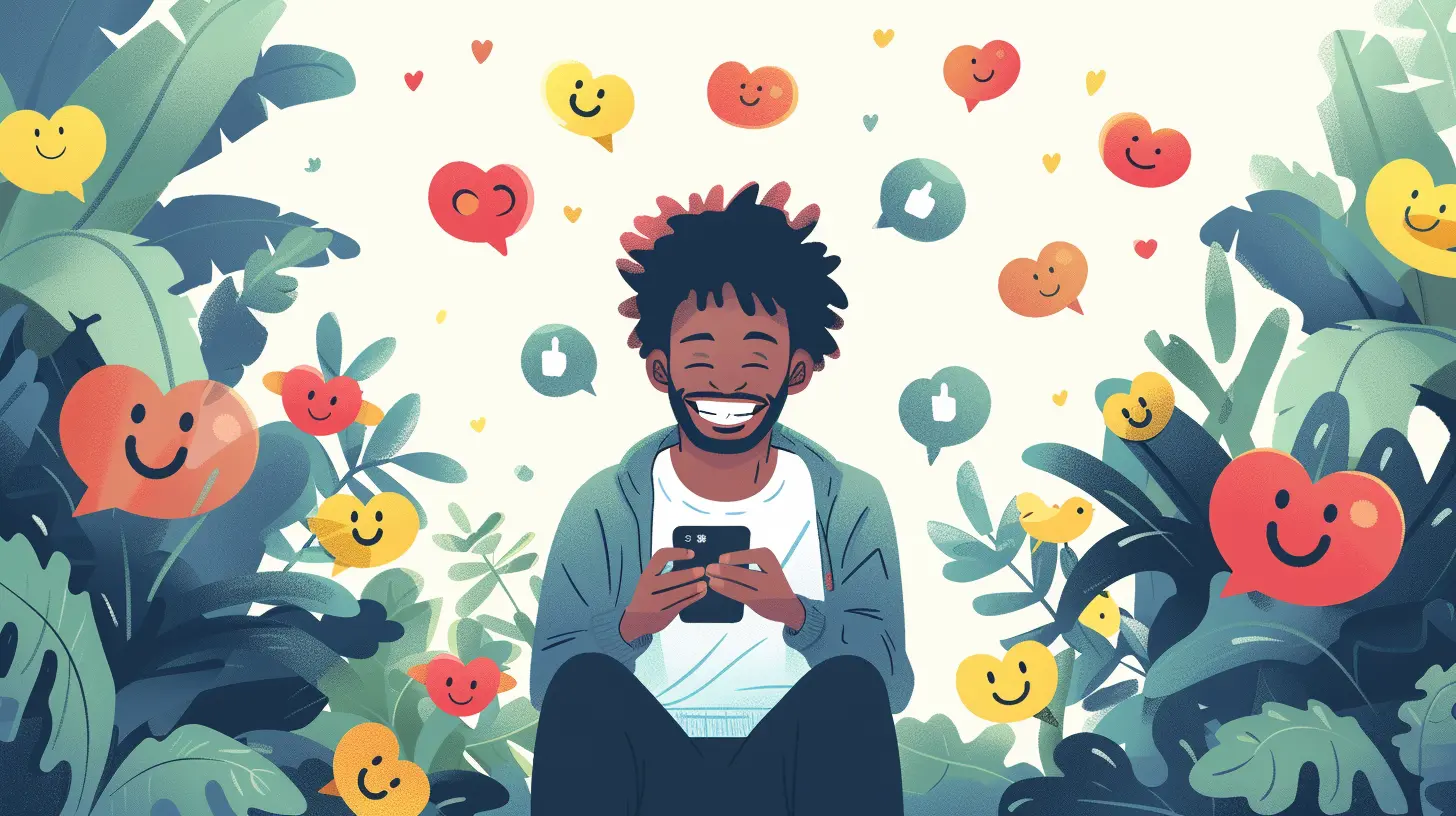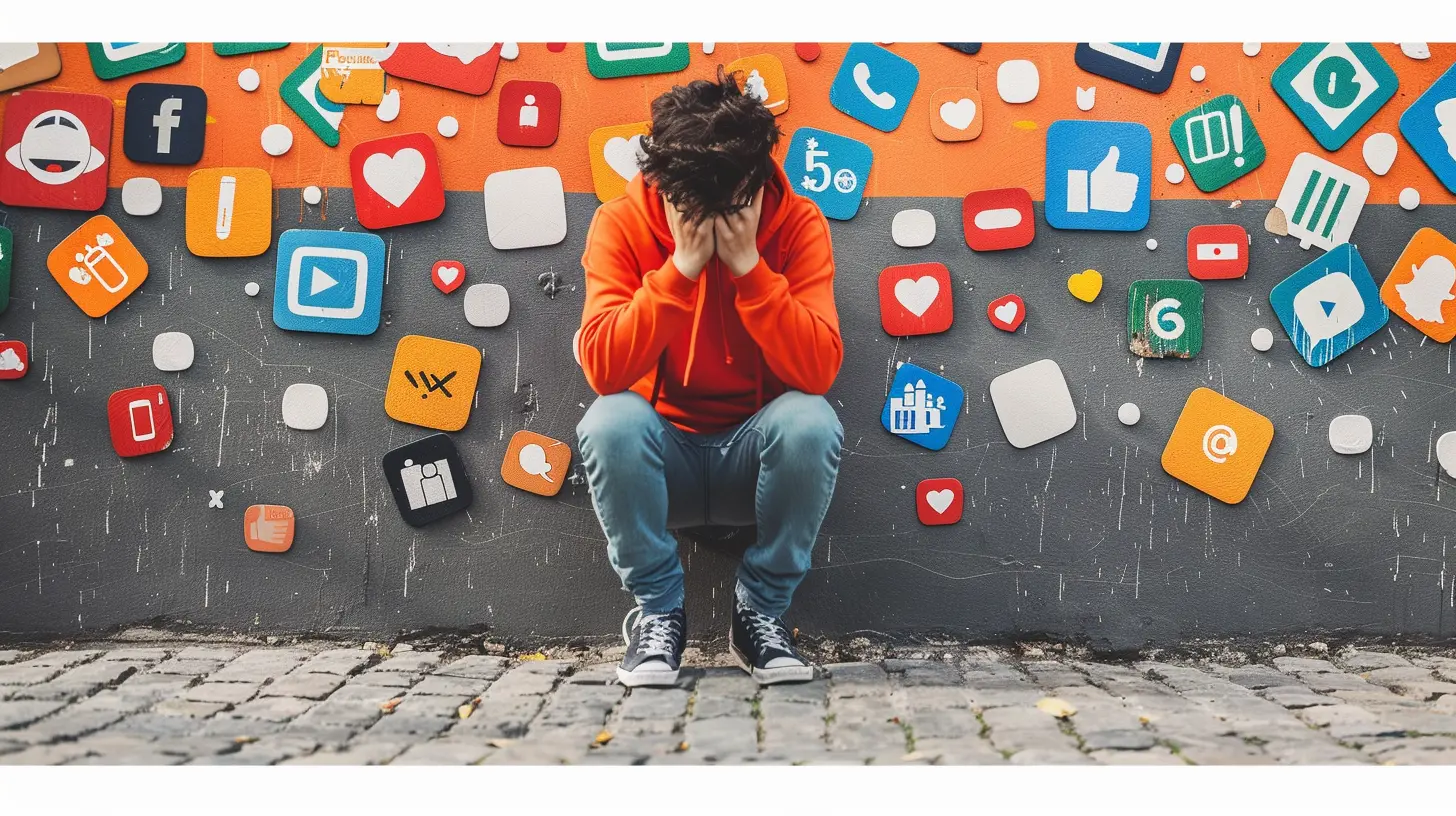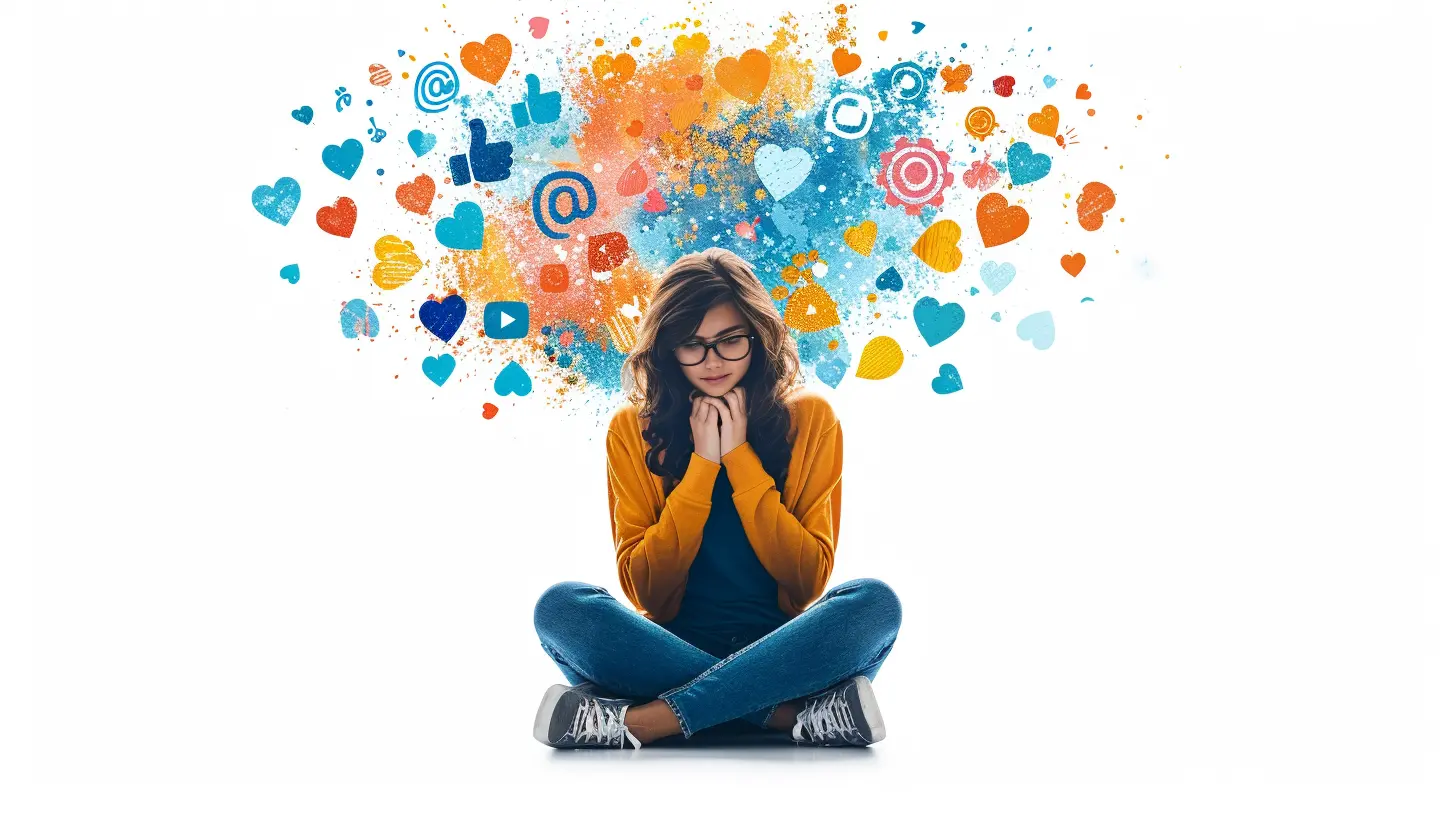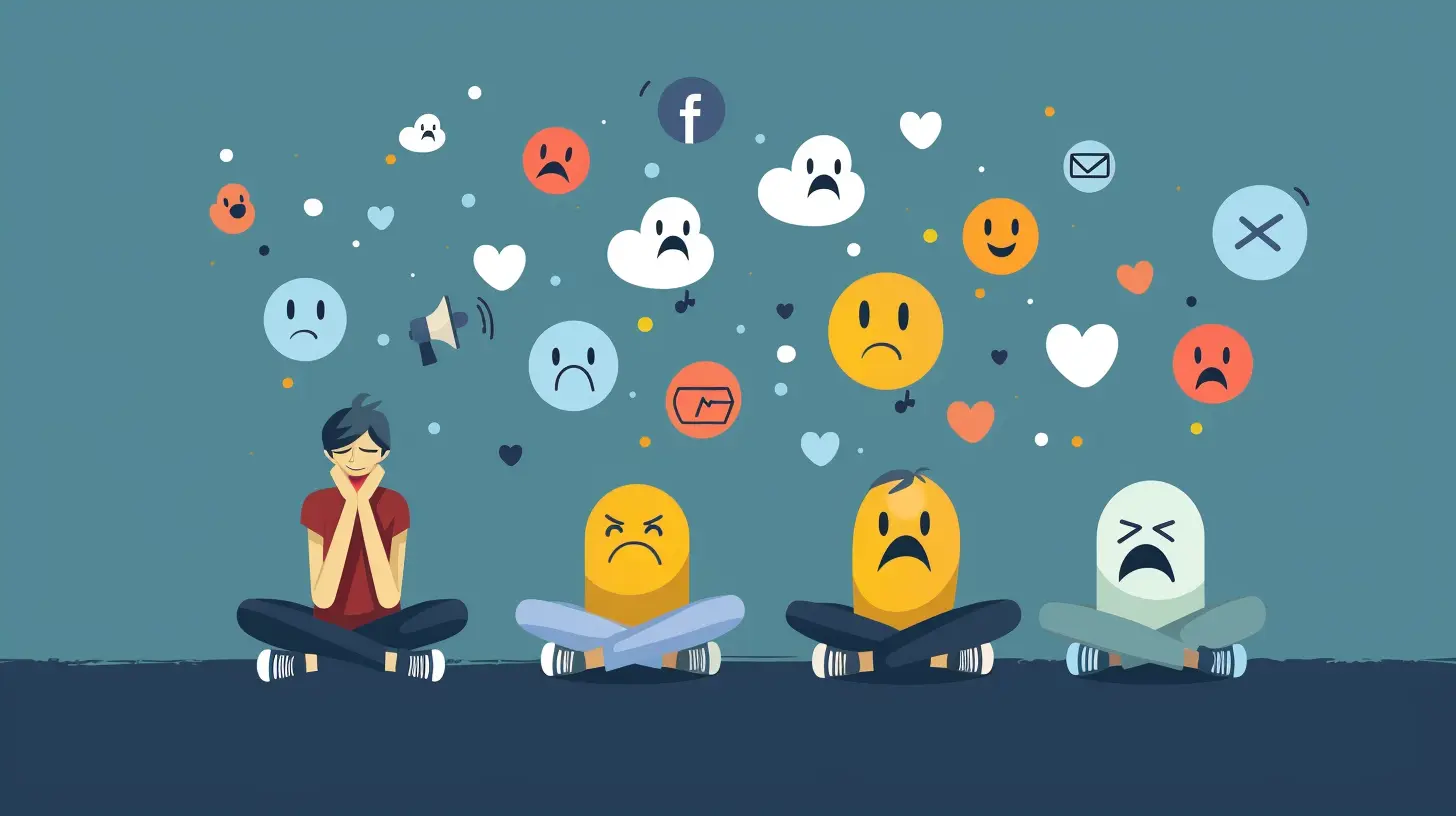Social Media Detox: Impact on Mental Health and Happiness
19 July 2025
Let’s face it—social media is a huge part of our lives. We scroll through Instagram before bed, post selfies on vacation, stalk influencers on TikTok, and maybe get sucked into hours of Facebook drama. Sound familiar? You're not alone. But have you ever thought about what all that screen time is doing to your brain—or better yet, your happiness?
Taking a social media detox might sound extreme or even terrifying, especially if you’re glued to your phone 24/7. But trust me, unplugging could be the best thing you’ve done for your mental well-being in a long time.
In this article, we’ll dive into the real effects of social media on mental health, what a detox actually looks like, and what kind of happiness boost you might experience from stepping away from your feeds. Buckle up—it’s going to be eye-opening.
What Is a Social Media Detox?
Let’s break it down. A social media detox simply means taking a break from digital platforms like Instagram, Facebook, TikTok, Twitter (okay, X), Snapchat…you get the idea. It can be for a few hours, days, or even months, depending on your goals.Some people delete the apps or log out completely. Others limit their use with screen time alerts or “no social media” weekends. The point? To reduce the overwhelming noise, comparison, and constant dopamine hits that social apps provide.
It's like giving your brain a chance to breathe.
Why We’re All Addicted (Yes, Even You)
Ever wondered why you can’t stop checking your phone? Two words: dopamine addiction.Every time you get a "like," comment, or new follower, your brain releases dopamine—the feel-good chemical. It’s the same chemical involved in eating chocolate or falling in love. Social media apps are literally designed to keep you hooked by triggering these little rewards.
But here's the catch: the more you crave it, the more you're reinforcing a cycle that can lead to stress, anxiety, and even depression.
Sound intense? That’s because it is.
The Mental Health Toll of Social Media
Okay, let’s get serious for a second.1. Anxiety and Depression
Studies have shown a strong link between heavy social media use and increased levels of anxiety and depression. Ever scrolled through your feed and felt like everyone else is living their best life while you're just... existing? That’s social comparison at work.We end up comparing our behind-the-scenes to someone else’s highlight reel. And guess what? We always come up short.
2. Poor Sleep Quality
Raise your hand if you check your phone in bed. Now lower it if you have trouble sleeping. Yep, there’s a connection.Screen time before bed messes with your brain’s melatonin production, making it harder to fall—and stay—asleep. Plus, doomscrolling right before you close your eyes? Not exactly a lullaby.
3. FOMO (Fear Of Missing Out)
Ah yes, the classic FOMO. It keeps us glued to our screens, anxious that we’re missing a party, a trend, a meme, or even a subtle shade war on Twitter. This constant need to stay in the loop can leave you feeling restless, anxious, and oddly empty.4. Reduced Attention Span
You thought TikTok would entertain you. It did—but it also may have shattered your attention span. Short-form content trains your brain for quick hits, making it harder to focus on anything deeper or longer than a 60-second video.Reading a book? Tough. Sitting still with your thoughts? Torture.
The Flip Side: Benefits of a Social Media Detox
Here’s the good stuff. Walking away from social media—even just for a bit—can radically transform your mental health and overall happiness.1. Lower Stress Levels
When you're not constantly bombarded with news, ads, and online drama, your brain gets a break. Many people report feeling lighter, calmer, and more at peace after just a day or two.Imagine that—mental silence.
2. Better Mood
Without the constant comparison, validation-seeking, and doomscrolling, your mood gets a boost. You start to pay attention to what’s going on around you—not what someone posted an hour ago.You actually feel more present. And yes, that does wonders for your happiness.
3. More Free Time
The average person spends around 2.5 hours per day on social media. That’s over 17 hours a week! Now, imagine what you could do with that time. Pick up a hobby? Read a book? Actually talk to people face-to-face?When you detach, you get your time—and your life—back.
4. Improved Self-Esteem
Without the constant comparison trap, many people notice a boost in self-worth. You stop measuring your value by likes, comments, or follower count. You start focusing on who you really are, offline.How to Do a Social Media Detox (Without Losing Your Mind)
Thinking about going cold turkey? You don’t have to. A detox can be flexible. Here are some practical steps to ease into it:Step 1: Set Clear Goals
Ask yourself why you want to detox. Is it to reduce anxiety? Be more present? Sleep better? Nail down your “why” and the rest becomes easier.Step 2: Choose the Length
Start small. Maybe one weekend without social media. Then build up to a full week—or more. Don’t stress over it. This isn’t a punishment.Step 3: Delete or Limit Access
Delete the apps or log out. If that’s too intense, set screen time limits or use apps that block access after a certain time. Out of sight, out of mind.Step 4: Fill the Gap
Replace scrolling with something else—walking, journaling, meditating, calling a friend. The key isn’t just to stop using social media; it’s to replace it with something more nourishing.Step 5: Reflect
After your detox, think back. How did you feel? What changed? Would you do it again?You might be surprised at the difference.
Real Stories: What People Say After Detoxing
“I didn’t realize how anxious I was until I logged off. Within two days, my brain just... slowed down.”“I started to actually enjoy my mornings—not racing to my phone, but enjoying coffee and reading.”
“I stopped comparing my life to others and started appreciating what I have.”
These aren’t just feel-good quotes. They’re proof that stepping away can clear the mental clutter and make room for actual joy.
Social Media: It’s Not All Bad
Let’s be real—social media isn’t evil. It helps us connect, share ideas, and feel less alone (especially during tough times). The problem isn’t the platform—it’s how we use it.The key is balance.
If you can use social media in a mindful way—checking in occasionally, setting boundaries, ignoring toxic content—you don’t have to quit completely. But if your mental health is suffering, it might be time for a reset.
Tips to Maintain a Healthy Relationship with Social Media
After your detox, you don’t have to go back to the way things were. Here's how to keep things in check:- Turn off notifications: Don’t let your phone control you.
- Unfollow toxic accounts: If it doesn’t bring you joy, cut it.
- Schedule social time: Limit your app use to a set time of day.
- Avoid using it when bored: Replace the habit with something fulfilling.
- Check in with yourself: Ask, “How do I feel after scrolling?”
The goal is to make social media work for you—not the other way around.
The Bottom Line
A social media detox might be the reset your brain—and your heart—needs.You don’t have to go off the grid forever, but stepping away from the endless scroll can help you reconnect with the real world, your inner peace, and what truly makes you happy. Think of it like spring cleaning for your mind.
So… are you ready to log off for a bit? Your happiness might just be a logout button away.
all images in this post were generated using AI tools
Category:
Mental HealthAuthor:

Laurie Barlow
Discussion
rate this article
1 comments
Geneva McMahon
A social media detox can be a game-changer for mental health. Reducing online noise helps reclaim focus and boosts overall happiness—definitely worth considering for a clearer mind!
August 10, 2025 at 4:57 AM

Laurie Barlow
Thank you for your insight! A social media detox can indeed lead to improved mental clarity and well-being, making it a valuable practice for many.


